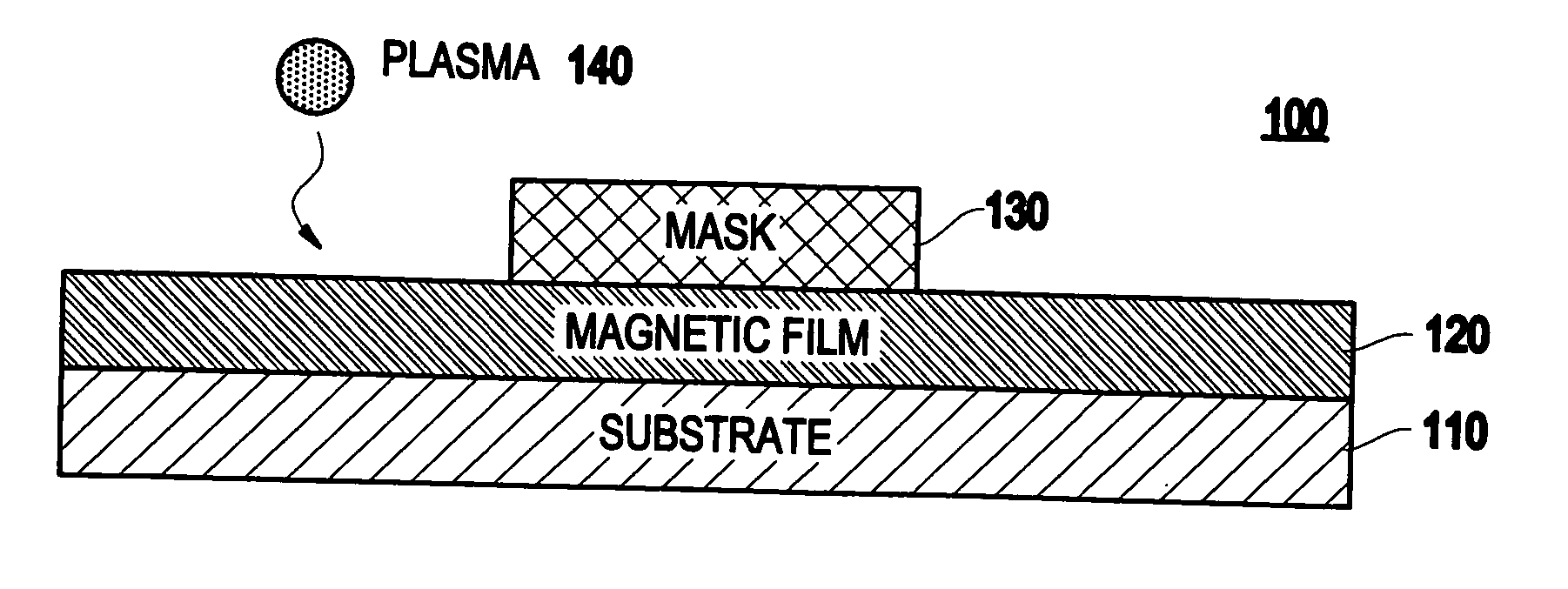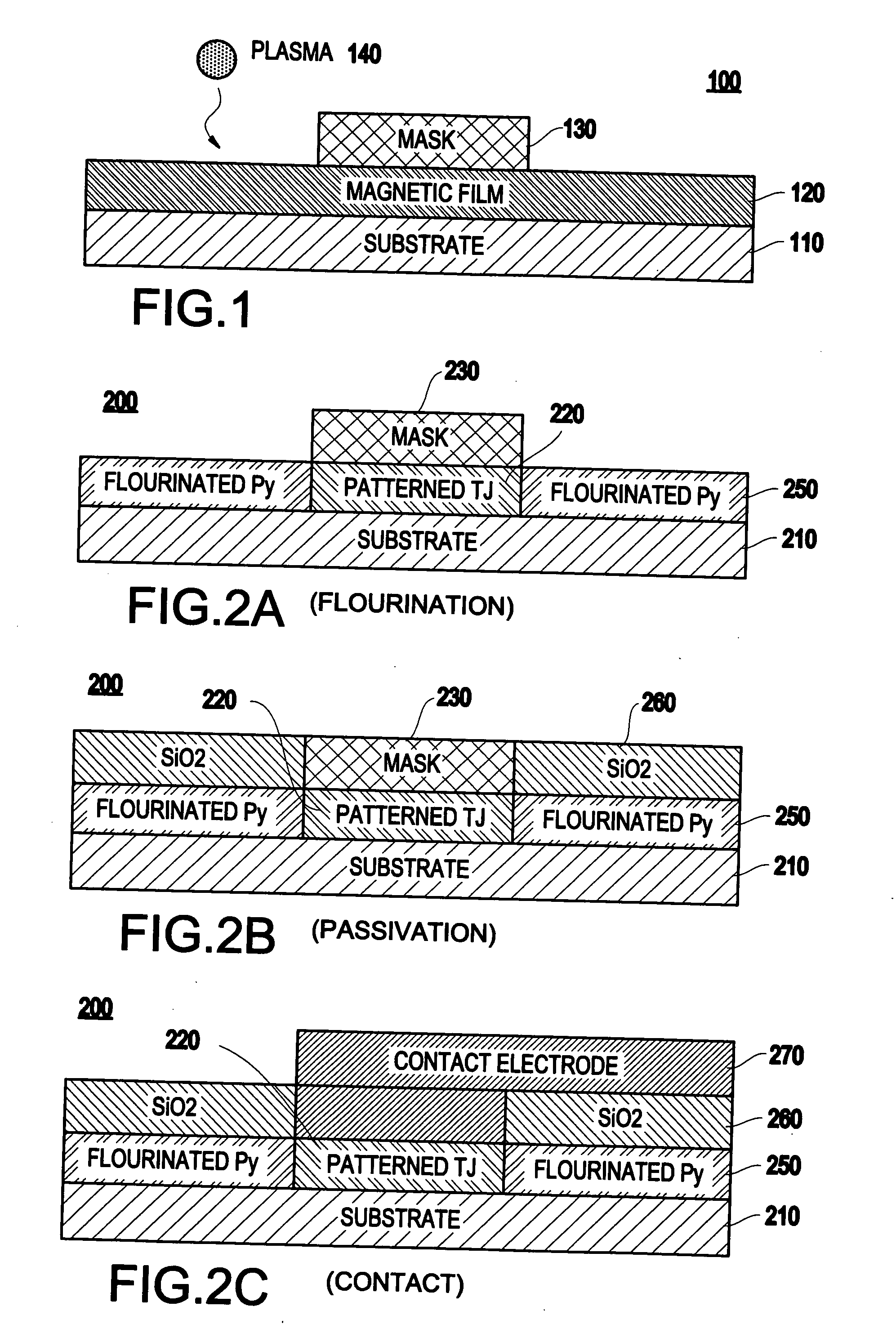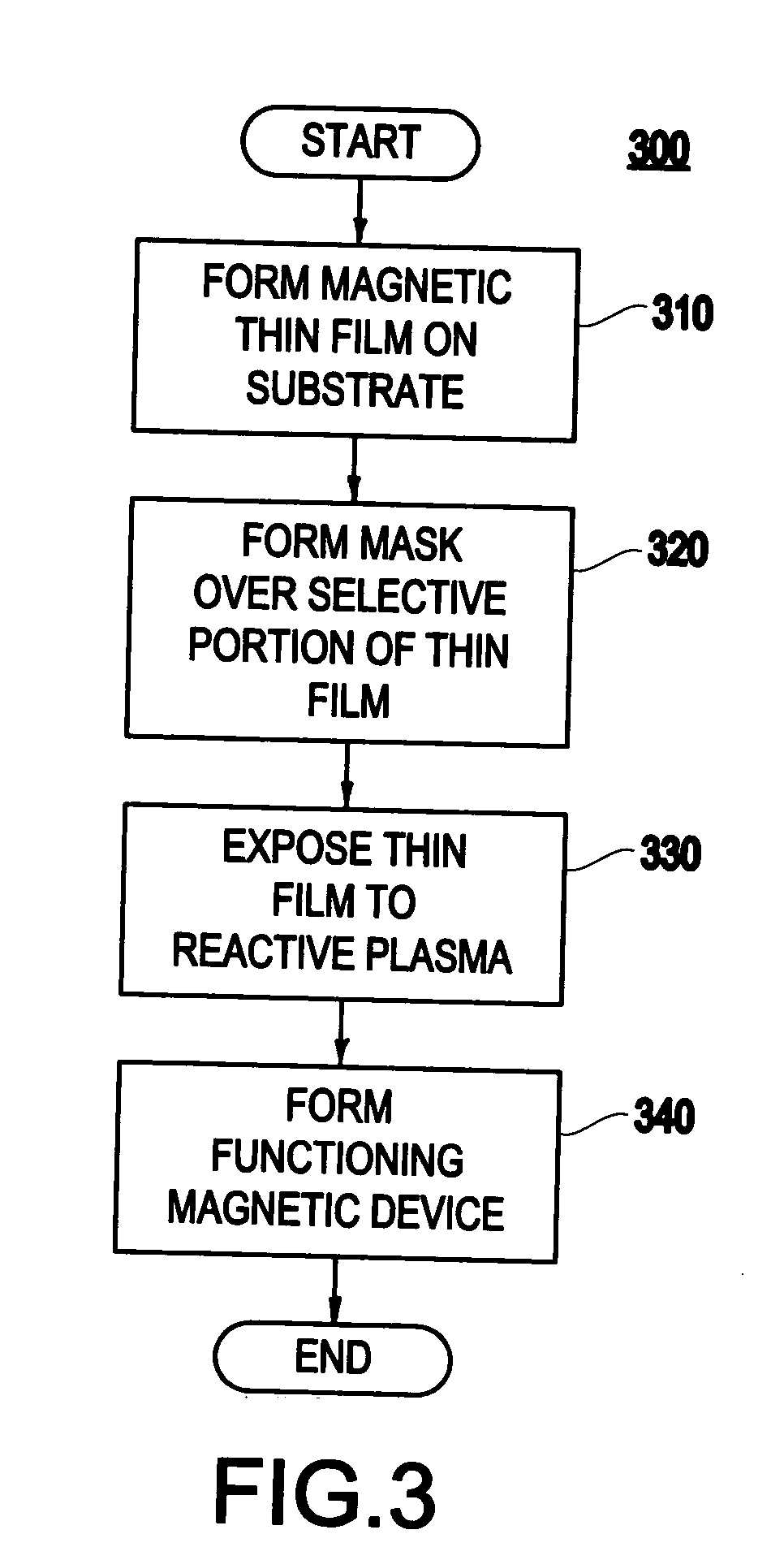Method and system for patterning of magnetic thin films using gaseous transformation
- Summary
- Abstract
- Description
- Claims
- Application Information
AI Technical Summary
Benefits of technology
Problems solved by technology
Method used
Image
Examples
Embodiment Construction
[0026] Referring now to the drawings, and more particularly to FIGS. 1-4B, there are shown preferred embodiments of the method and structures according to the present invention.
[0027] Exemplary Embodiment
[0028] Turning now to FIG. 1 and an exemplary method (and structure formed by the method) of the invention will be described. Specifically, a method of patterning magnetic thin films (e.g., in the exemplary embodiment, a Permalloy™ thin film) which uses chemical transformation of the undesirable part of the film to transform it to be non-magnetic, will be described.
[0029]FIG. 1 illustrates a structure 100 in which a substrate 110 is provided. The substrate may be any suitable material (e.g., silicon, SiO2, sapphire, etc.).
[0030] On a surface (e.g., the top surface) of the substrate 110, a magnetic film 120 (e.g., Permalloy™, alloys of nickel, iron, and cobalt, and any of a number of other magnetic alloy materials) is formed. Preferably, the thin film 120 has a thickness in a ran...
PUM
| Property | Measurement | Unit |
|---|---|---|
| Magnetic field | aaaaa | aaaaa |
| Magnetic field | aaaaa | aaaaa |
| Temperature | aaaaa | aaaaa |
Abstract
Description
Claims
Application Information
 Login to View More
Login to View More - R&D
- Intellectual Property
- Life Sciences
- Materials
- Tech Scout
- Unparalleled Data Quality
- Higher Quality Content
- 60% Fewer Hallucinations
Browse by: Latest US Patents, China's latest patents, Technical Efficacy Thesaurus, Application Domain, Technology Topic, Popular Technical Reports.
© 2025 PatSnap. All rights reserved.Legal|Privacy policy|Modern Slavery Act Transparency Statement|Sitemap|About US| Contact US: help@patsnap.com



